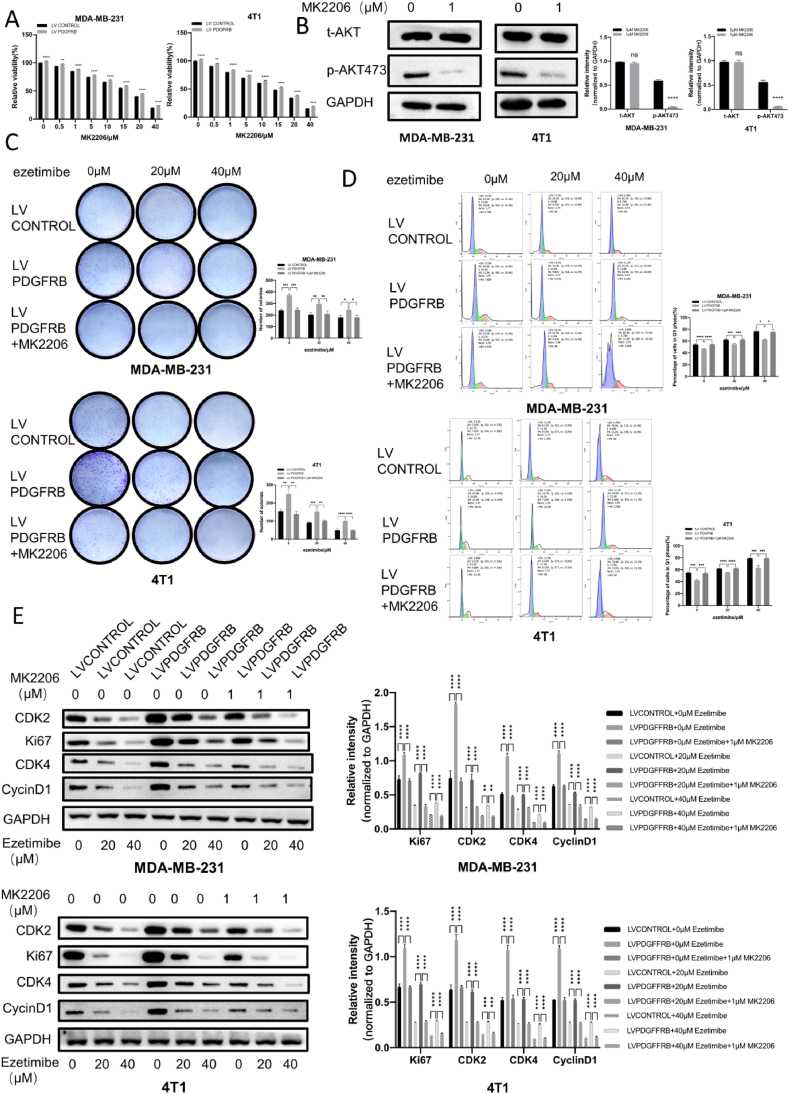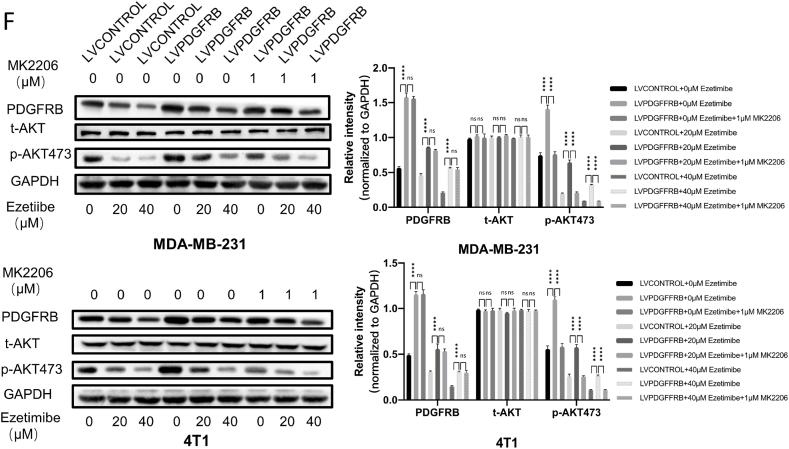Fig. 5.
The impact of MK2206 on the inhibitory effect on the proliferation and cell cycle arrest of PDGFRβ overexpressing TNBC cells by Ezetimibe. (A) MDA-MB-231 and 4T1 cells overexpressing PDGFRβ or transfected with empty vector were treated with different concentrations of MK2206 (0, 0.5, 1, 5, 10, 15, 20, 40 μmol/L) for 48 h, and cell viability was measured using the CCK-8 assay. (B) MDA-MB-231 and 4T1 cells were treated with MK2206 (0, 1 μmol/L) for 48 h, and the expression of t-AKT and p-AKT473 was examined by Western blot. (C) MDA-MB-231 cells overexpressing PDGFRβ or transfected with empty vector were treated with different concentrations of MK2206 (0, 1 μmol/L) and Ezetimibe (0, 20, 40 μmol/L) for 10 days, and 4T1 cells were treated for 14 days. Cell clony formation was assessed by colony formation assay. (D) PDGFRβ-overexpressing MDA-MB-231 and 4T1 cells, as well as control cells, were treated with different concentrations of MK2206 (0, 1 μmol/L) and Ezetimibe (0, 20, 40 μmol/L) for 48 h, and cell cycle distribution was analyzed by flow cytometry. (E) PDGFRβ-overexpressing MDA-MB-231 and 4T1 cells, as well as control cells, were treated with different concentrations of MK2206 (0, 1 μmol/L) and Ezetimibe (0, 20, 40 μmol/L) for 48 h, and the expression of Ki67, CDK2, CDK4, and CyclinD1 proteins was examined by Western blot. (F) PDGFRβ-overexpressing MDA-MB-231 and 4T1 cells, as well as control cells, were treated with different concentrations of MK2206 (0, 1 μmol/L) and Ezetimibe (0, 20, 40 μmol/L) for 48 h, and the expression of PDGFRβ, t-AKT, and p-AKT473 proteins was examined by Western blot. The results shown in the figures represent the mean ± standard deviation (Mean ± SD) of three independent experiments. Statistical significance is denoted as: *p < 0.05, **p < 0.01, ***p < 0.001, ****p < 0.0001. Here 0 μmol/L Ezetimibe, MK2206 or other chemicals refers to 0.1 % (v/v) DMSO solution.


